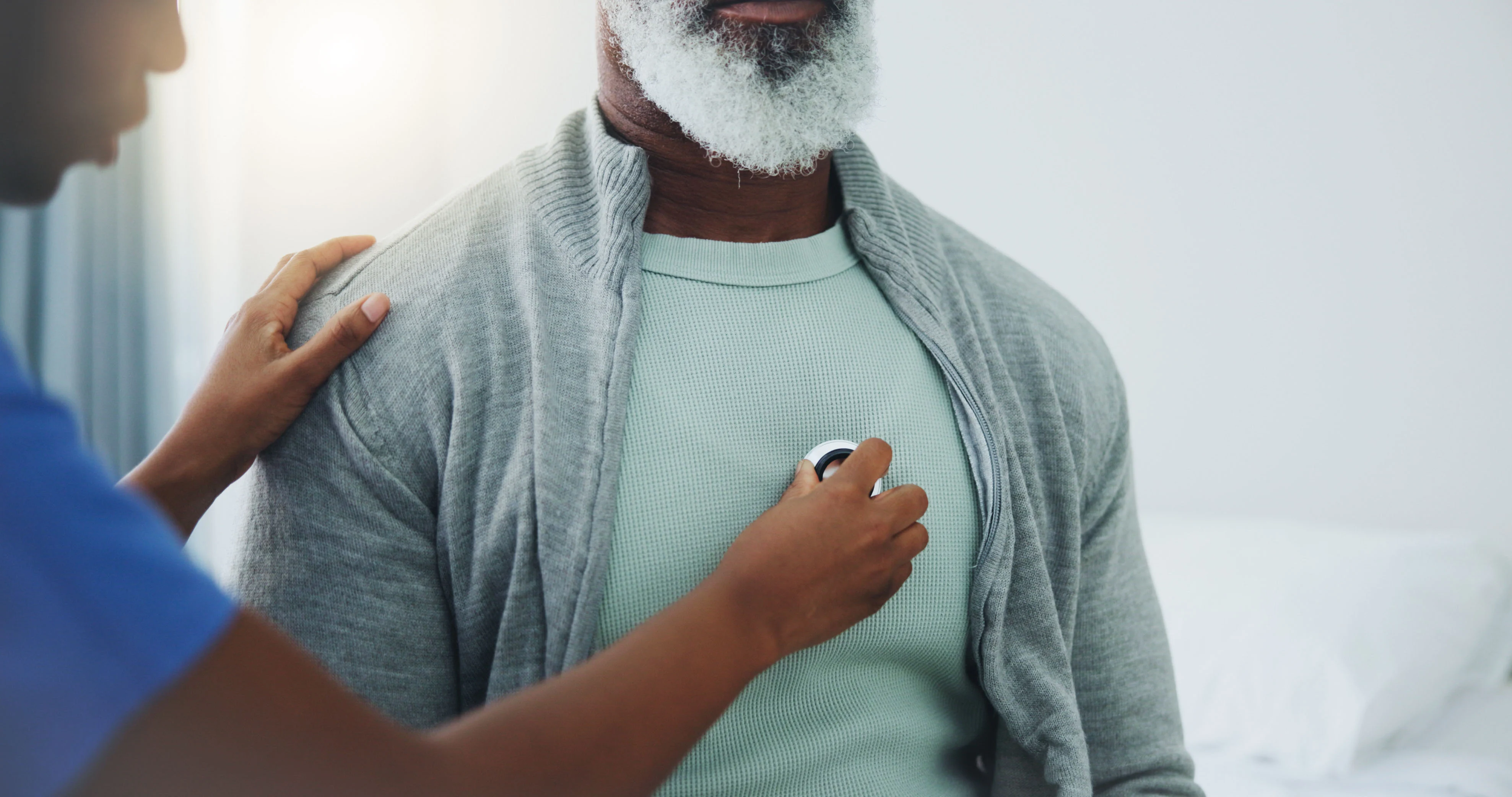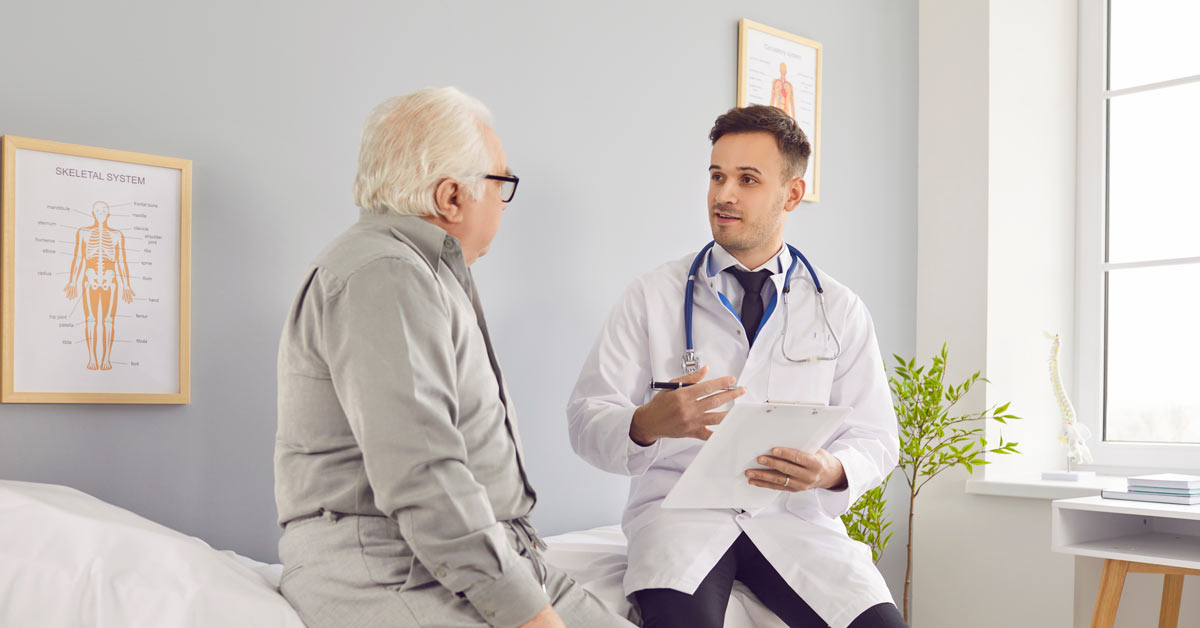A New Study Reinforces Why it is Critically Important For People With Sleep Apnea to Continue With Their Therapy.
A new study from the American College of Cardiology proves that sleeping well plays an important role in your overall health—and can even add years to your life.
The study looked at data from 172,321 people who participated in a survey between 2013 and 2018.
Researchers analyzed five measures of quality sleep:
- Getting 7-8 hours of sleep each night
- Having difficulty falling asleep no more than two times a week
- Having trouble staying asleep no more than twice a week
- Not using any sleep medications
- Waking up feeling well-rested at least five days a week
The results: for people who met all five of the measures, life expectancy was 4.7 years longer for men and 2.4 years longer for women, compared to people who met only one or none of the measures.
The study also suggests that about 8% of deaths could be attributed to poor sleeping.
The researchers commented that sleep apnea can lead to a number of heart conditions, including high blood pressure, atrial fibrillation, and heart attacks. Robert Miller, Apria Healthcare Vice President of Sleep Business, adds, “That’s why it is so important for people with or who think they might have sleep apnea to get diagnosed and then are adherent to their PAP therapy.”
Poor Sleep Can Lead to Poor Outcomes
Most adults need between 7 and 9 hours of sleep every night. But up to 35% of adults in the U.S. don’t get enough sleep.
Studies show that poor sleep puts you at risk for a variety of serious health conditions, including heart disease, diabetes, depression, dementia, and high blood pressure.
Recent research also reveals that people who slept less than 7 hours per night had a 41% increased risk of developing obesity.
And not getting enough sleep can be dangerous, increasing your chances of a car accident or being injured at work.
The Benefits of Good Sleep
Sleeping 7-9 hours each and every night offers a variety of health advantages:
- Improves your memory, concentration, productivity, and problem-solving skills
- Maximizes athletic and physical performance, fine motor skills, and endurance
- Minimizes your risk of developing diabetes
- Enhances emotional and social intelligence to maintain relationships
- Promotes better overall heart health to reduce the likelihood of developing heart disease and high blood pressure
- Reduces inflammation, which is associated with rheumatoid arthritis, cardiovascular diseases, and gastrointestinal disorders
- Strengthens your immune system to better protect you from illness and help you recover more quickly if you become ill
Tips to Improve Your Sleep and Sleep Apnea Treatment
Sleep apnea is a chronic health condition that affects millions of people worldwide. However, it can be successfully treated.
Following are three ways to help you do just that!
1. Use Your CPAP Machine
If your doctor prescribed a CPAP (continuous positive airway pressure) machine, it’s important that you use it every night. CPAP is the proven method to help effectively manage sleep apnea.
CPAP involves wearing a mask that fits comfortably over your nose or mouth while you sleep. The mask is connected to a machine by your bed that provides a constant, quiet flow of air to keep your airways open so you can breathe—and sleep—normally.
2. Or Try a BiPAP Machine
Some people benefit from an alternative to CPAP called BiPAP (bilevel positive airway pressure). Both require a face mask and tubing connected to a device that pumps air to help you breathe more normally. But BiPAP delivers pressurized air at two alternating levels: one level when you inhale and another when you exhale.
Because BiPAP uses two pressures, it is more like natural breathing, which many people with sleep apnea find more comfortable.
3. Make Lifestyle Changes
There are many things you can do to help treat your sleep apnea.
Maintain a healthy weight. Even a modest weight reduction helps keep airways clear to reduce sleep apnea symptoms.
Change your sleep position. This can decrease sleep apnea symptoms and improve your sleep. Sleeping on your side encourages normal breathing.
Avoid alcohol and smoking. Both can affect your airways, blocking airflow and disrupting breathing.
Watch what you eat and drink. Refrain from spicy foods, fatty and greasy foods, caffeine, and excessive amounts of sugary foods or liquids, especially before bed.
Exercise often. This can increase your energy level, strengthen your heart, and improve your sleep by helping you relax when you go to bed.
Practice “sleep hygiene.” Follow a consistent sleep schedule. Go to bed and wake up at the same time every day. Keep your bedroom dark and cool. And turn off screens before turning in.
Decrease congestion. Humidifiers, nasal sprays, and nasal irrigation devices add moisture to your nasal passages to help you breathe more easily as you sleep.
Good Sleep Is Good For You!
Along with exercise and nutrition, sleeping well is one of the best things you can do for your health and overall well-being.
If you are having a hard time falling asleep and staying asleep, or if you are having difficulty sleeping with your CPAP or BiPAP machine, don’t hesitate to speak with your doctor.
Apria’s Robert Millers adds, “As a leader in the management of sleep apnea, Apria has a team of sleep specialists who can answer questions and provide the information you need.”
References
1. (2023, February 23). Getting Good Sleep Could Add Years to Your Life. American College of Cardiology. https://www.acc.org/About-ACC/Press-Releases/2023/02/22/21/35/Getting-Good-Sleep-Could-Add-Years-to-Your-Life.
2. Moniuszko, S. (2023, February 27). Quality sleep could add years to your life, study finds. CBS News. https://apple.news/AYXmenhMXTqeOdVeEpiJRrg.
3. Anthony, K. (Updated 2019, August 28). 6 Lifestyle Remedies for Sleep Apnea. Healthline. https://www.healthline.com/health/home-remedies-for-sleep-apnea.
4. Pacheco, D. (Updated 2022, April 21). What Makes a Good Night’s Sleep. Sleep Foundation. https://www.sleepfoundation.org/how-sleep-works/what-makes-good-night-sleep.
5. Migala, J. (2020, January 27). How to Boost Your Energy if You Have Sleep Apnea. Everyday Health. https://www.everydayhealth.com/sleep/sleep-apnea-energy-boost-tips/.
6. (2021, April). Good Sleep for Good Health: Get the Rest You Need.
NIH News in Health. https://newsinhealth.nih.gov/2021/04/good-sleep-good-health.
7. Leech, J. (Updated 2022, January 6). 10 Reasons to Get More Sleep.
Healthline. https://www.healthline.com/nutrition/10-reasons-why-good-sleep-is-important.
8. Pacheco, D. (Updated 2023, March 2). Why Do We Need Sleep? Sleep Foundation. https://www.sleepfoundation.org/how-sleep-works/why-do-we-need-sleep.
9. Fletcher, J. (Updated 2023, January 6). Why sleep is essential for health. Medical News Today. https://www.medicalnewstoday.com/articles/325353.
10. Inflammation. National Institute of Environmental Health Sciences. https://www.niehs.nih.gov/health/topics/conditions/inflammation/index.cfm
LEGAL DISCLAIMER: Material in this newsletter is provided for general health education and informational purposes and to provide references to other resources only; it may not apply to you as an individual. While Apria Healthcare believes that the information provided through this communication is accurate and reliable, Apria Healthcare cannot and does not make any such guarantee. It is not intended to be a replacement for professional medical advice, evaluation, diagnosis, services or treatment (collectively, “medical treatment”). Please see your healthcare provider for medical treatment related to you and your specific health condition(s). Never disregard medical advice or delay seeking medical care because of something you have read on or accessed through this website. Reading this newsletter should not be construed to mean that you have a healthcare provider/patient relationship.

.png)



